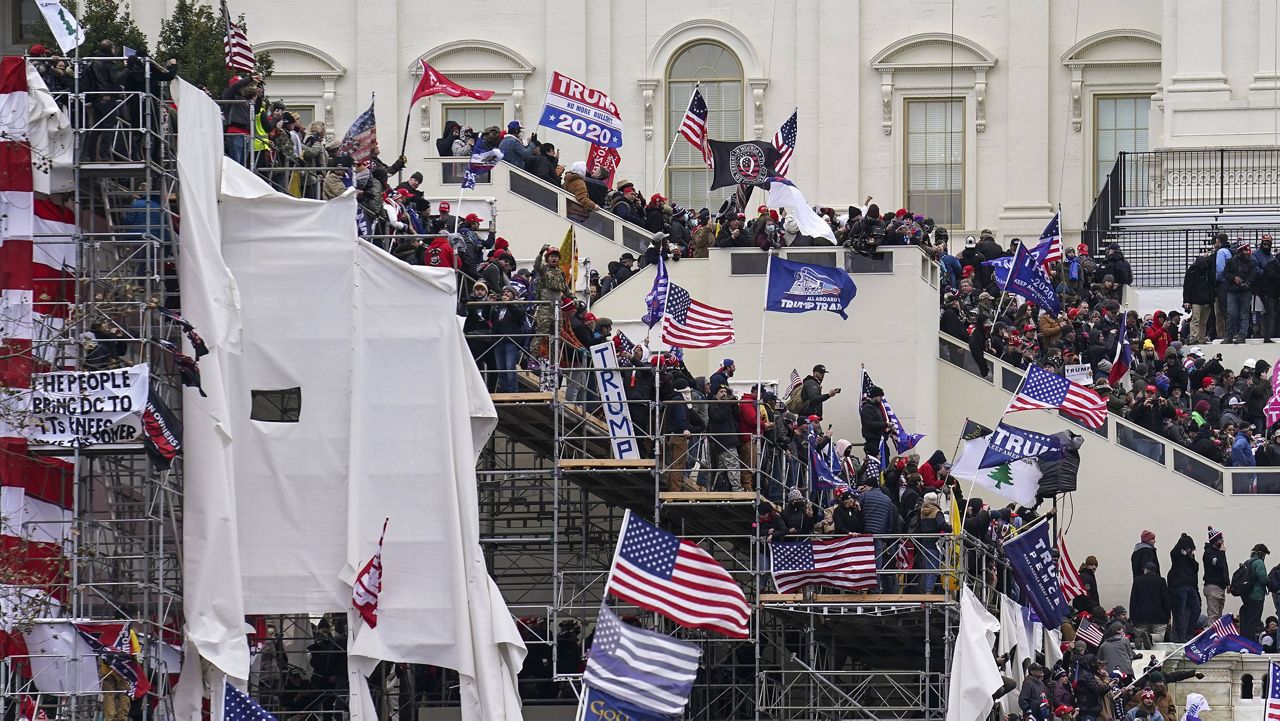Two of the Senate’s leading moderate Democrats — Sen. Joe Manchin of West Virginia and Kyrsten Sinema of Arizona — issued a rare joint statement urging their Republican colleagues to come together and negotiate on a bipartisan, independent commission to investigate the Jan. 6 Capitol riot.
“The events of January 6th were horrific,” they wrote. “We could never have imagined an attack on Congress and our Capitol at the hands of our own citizens. In the hours and days following the attack, Republican and Democratic members of Congress condemned the violence and vowed to hold those responsible accountable so our Democracy will never experience an attack like this again.”
The two moderates called the commission, which passed the House last week in a bipartisan vote, “a critical step to ensuring our nation never has to endure an attack at the hands of our countrymen again.”
“We implore our Senate Republican colleagues to work with us to find a path forward on a commission to examine the events of January 6th,” they concluded.
Thirty-five Republican lawmakers joined every House Democrat to pass the measure on a 252-175 vote on May 19, but the bill faces an uphill battle in the 50-50 Senate, where it would require the support of 10 Republican Senators to surpass the chamber’s 60-vote filibuster threshold.
On Tuesday, Alaska Sen. Lisa Murkowski said she would vote to support the bipartisan commission, becoming the second Senate Republican to publicly announce their support for the commission. Utah Sen. Mitt Romney announced his support on Monday.
Maine Sen. Susan Collins, a moderate Republican, said she sees “a need for a commission,” but noted that she is “working to correct flaws in the House bill.”
“I strongly support a commission,” Collins noted.
Seven Senate Republicans — including Sens. Collins, Romney and Murkowski — voted to convict former President Donald Trump during his second impeachment trial, charged with inciting the Jan. 6 insurrection.
Louisiana Sen. Bill Cassidy has previously told reporters that he is inclined to support the commission.
But not all of the Republicans who voted to convict are in favor of the commission.
North Carolina Sen. Richard Burr, R-N.C., who voted to convict Trump, said last week that he will oppose the commission, noting he believes that the “appropriate course” is to allow the “committees with jurisdiction” to lead investigations.
“I don’t believe establishing a new commission is necessary or wise,” he added.
The bill to create the commission faces staunch opposition from Republican Congressional leadership, most notably House Minority Leader Kevin McCarthy and Senate Minority Leader Mitch McConnell, despite the fact that the bill was, in part, negotiated by Republican Rep. John Katko, the ranking member of the House Homeland Security Committee.
Rep. Katko said in a floor speech last week that the measure “is modeled directly on the legislation that created the 9/11 Commission,” meaning that membership on the commission would be split equally by Democrats and Republicans.
The New York Republican also poured water on the false claim from some of his fellow Republicans that Democrats would control all staff hires, which he said is “simply not true.”
“Here’s what the bill does: It requires consultation between the chair, appointed by the Democrats, and the vice chair, appointed by the Republicans, for any hiring of staff, and further requires that it be in accordance with rules agreed upon by the commission,” Katko said on the House floor. “The commission creates rules as a team, then they then hire as a team.”
Regardless of Republican opposition, Senate Majority Leader Chuck Schumer has said he will put the measure on the floor for a vote, possibly as soon as this week.
“We hope to vote this week,” Schumer said Tuesday, pledging to put Republicans on the record on the measure.
“The formation of the commission is more important now than it’s ever been,” Schumer said Monday. “In the months since Jan. 6, Washington Republicans have tried to rewrite history and recast the attack of Jan. 6 as little more than peaceful protests that got out of hand.”



